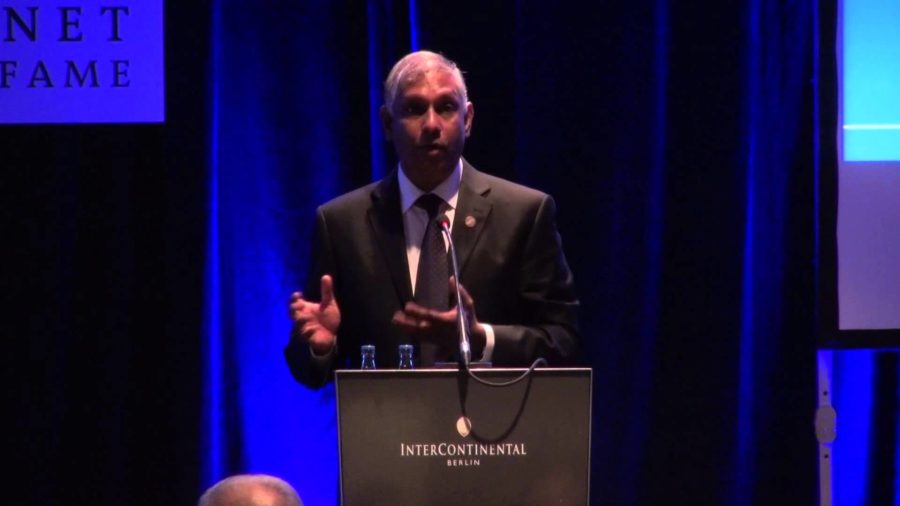Thank you. I’m really grateful for this honor, but really it is not just me. There were many many people behind this, so let me talk about the story. It started in the mid-1980s when I and many other people were graduate students in the US. And we found this great technology called email which allowed us to talk to each other. But we didn’t have that back in Sri Lanka. So we set up a network to connect all the people, not just in the US but all of the world, and called it SLnet, Sri Lanka Network. And that was really one of the first social networks. There were others, but one of the first. It was set up globally, long before the word “social network” was ever coined.
And then we found okay, we needed funding. We set up a nonprofit organization called Lanka Academic Network to fund this initiative. And so I think this is how it all started. Then in 1992 when I was back in Sri Lanka, we said okay let’s start this Internet here in Sri Lanka. And we set it up, and again the funding came from the same community. We just got three hundred dollars from the government. But that’s okay. We did it anyway.
And as things continued, we set up the network. We connected everybody. Again, it was many many people all around the country as well as other countries. And especially I’m grateful for the funding we got from international organizations such as the Swedish government for making that happen.
Then in 2002, I took up another challenge. That is, how do we make these computers available for people who do not speak English? So, in our country we have two languages, Sinhala and Tamil, which are written in different scripts, not the Latin script we use for English. So how do we get all these computers, phones, tablets, all the devices, to use those languages? It was a difficult task because these were quite small languages. Only several million people use them. And the vendors were not interested in small languages. But however, we persevered, and we had first Windows, then Linux—GNU Linux—and then various other platforms also supporting this.
And now we need content. So we went round and said okay, how do we do the content? And that’s really what kept me busy for the last maybe twenty or twenty-five years.
But right now we have more challenges. We need to make this Internet accessible to everyone, at an affordable price. We need to ensure cyber safety—that we are not endangered by being on the net. And privacy—that we do not give up our rights just to access the Internet. So I think there’s a lot more work to be done.
Let me conclude by saying that I thank the Internet Society for this, but it’s not really for me. It is for all the people who helped the entire community to achieve what we have done. Thank you.
Further Reference
Inductee Gihan Dias Recalls Birth, Growth of Sri Lankan Internet
Gihan Dias profile, Internet Hall of Fame 2013
